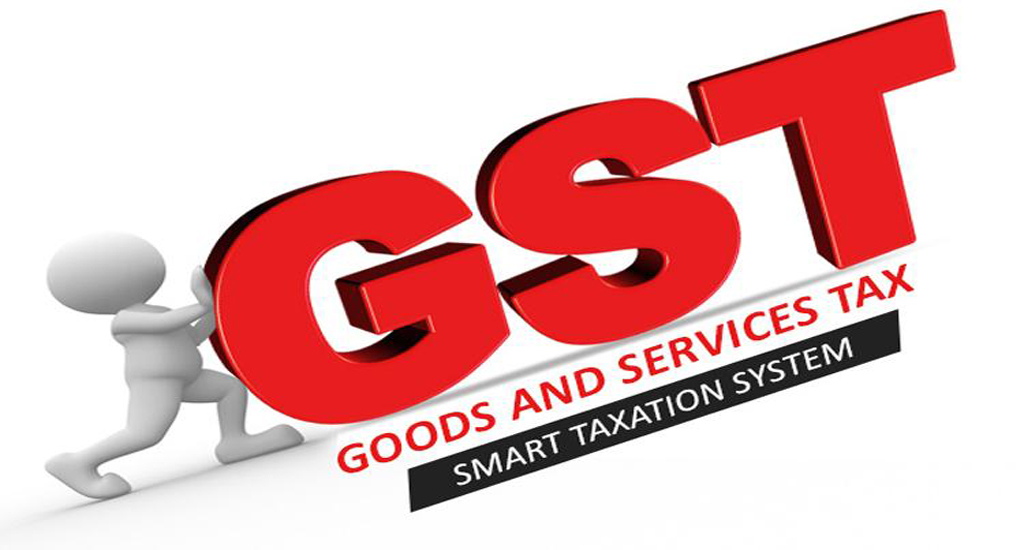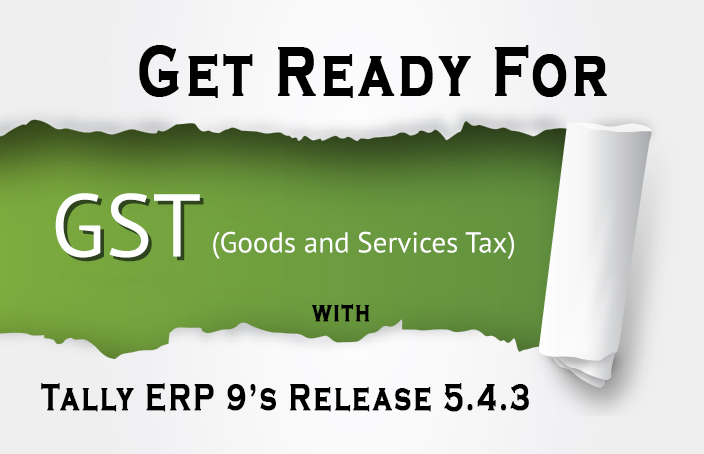Finance Minister Arun Jaitley said that the country needs the better implementation of the GST by September 2017 as the implementation would create jobs in large scale. The implementation of GST has increased the jobs in the formal sector such as automobiles, logistics, e-commerce and cement So the students must join GST Taxation course in Yamuna Vihar/Delhi as soon as possible to get the opportunity in Taxation career. E-commerce and logistics have created maximum job due to more demand while the cement industry is expected to create jobs due to high profitability rate. According to a study done by a staffing firm named TeamLease Services, the passage of GST bill will see growth in the job market and the single-tax system will play a vital role. The firm suggested that there will be 11-18 percent of additional jobs per year in the above-mentioned sectors.
GST (Goods and Service Tax), is a new tax regime for current taxation system of India. But the important issue is what impact it has done on Indian economy after GST became applicable in India? What is new in GST which helped to us for creating a better Indian economy? What is the impact on jobs, inflation etc.? There are lots of questions which are still not answered anywhere and here we can just hope for the better India after this biggest change in the taxation system.

Read Also: What if Petrol and Diesel come Under GST India?
In past scenario, there were lots of loopholes in indirect tax laws. The loopholes had increased tax evasion and black money in India and in the result of this, inflation rate became high and the differences between the rich and the poor were increasing day-by-day.
After implementation of the new tax regime, the possibilities of job expansion in the Indian economy has increased as the GST is a promising opportunity which has implemented from July 1 this year. According to the sources, companies appointed accountants and tax consultants for a better approach towards the GST. However, GST has been considered fruitful to the financial professionals and also demanding around one lakh tax consultants as soon as possible.
Accordingly, various other sectors like e-commerce, retailing, manufacturing, services, logistics, supply chain, banking and financial sector will see a substantial rise in the job opportunities in the upcoming season. Also, the major part of the development is handled by the IT companies preparing GST software as the IT sector is playing a significant role in expanding the GST around the nation.
GST has tried to increase the transparency in transactions and GST return systems, while there are some provisions like as per sellers sales register in purchaser’s purchase registers entry will do automatically and that’s why no manipulation in the transaction is possible and it will help to reduce the black money and tax evasion in GST.
After GST, as supposed that it would help to increase in new job opportunities. Currently, our country has the largest population of the world and the biggest problem here is the unemployment to the educated and skilled persons. After application of GST, the business process became easier and the expansion of business is possible. As well as GST has increased the new business plan and motivated the new businessmen to take new initiative regarding business and consequently, the jobs and self-employment have increased in India.
Again GST represents a good image of India across the world. Many countries already incorporate GST to their states and there is a pressure of different countries up to India that GST should applicable here successfully and after GST application to India, the working environment for companies must be much friendly. So that multinational companies come here and do their business without any difficulties. We can say that GST will attract multinational companies to come here and it will help in increasing jobs.

Recommended: Goods and Services Tax Impact on Common Man in India
The Indian service and job arena have vast opportunities for the young generation, as the GST accommodates most of the working class population and job seekers into a well-designed approval. The GST is very ambitious in setting up job maximization and has also invited many global companies as a proposal in Foreign Direct Investment. The domestic demand has shown the growth after the GST implementation and this also has increased the job chances to soar high as the domestic demands have the tendency to fluctuate in various aspects and can generate a high frequency for the working force to indulge and take the services and increase the demand towards the completion.
As GST is a new law and lots of people are not much aware about this so it is the possibility that the people who know about GST can be in demand for companies so they can help for better tax administration for the corporate sector.
GST Has Opened The Doors For Finance And Commerce Graduates
After the GST implementation, the people who are graduated from M.com, B.com, and MBA finance are in huge demand irrespective of their college backgrounds. Most of the companies like TeamLease Services, Antal International, EY India, and many more large corporates have accepted the fact that they are hiring graduates and professionals of commerce across the Industries. Most of the new hiring for commerce graduates in FY2017 are GST related.
The graph of Ernst & Young shows that they have increased the hiring percentage to 60% in its Indirect Tax practices from junior to senior level. The fact behind the hiring is that all the businesses irrespective of size need to comply with the GST’s digital go and multiple taxes levied in the arrangements of CGST and SGST. It has increased the demand for professionals in taxation, accounting, data analysis, and accounts.
The CAs are also in great demand and due to short supply of CAs, corporates have hired the knowledgeable persons of commerce background. The VC of TeamLease Services has directed that they are going to hire 20,000 financial professionals for the company in coming time. So, we can expect more of demand for commerce graduates across the Industries in new Indirect Tax Regime.




